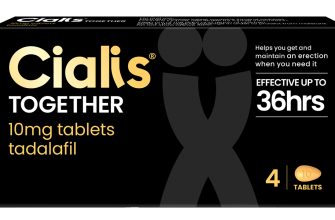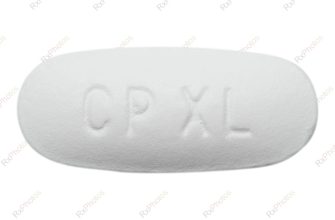Consider exploring alternatives such as inhaled corticosteroids, leukotriene modifiers, and biological therapies. These options target inflammation and help manage symptoms effectively. For those seeking natural remedies, options like turmeric, omega-3 fatty acids, and probiotics can also contribute positively to treatment plans.
Inhaled corticosteroids, like fluticasone and beclomethasone, offer similar anti-inflammatory properties but may come with different side effects. Leukotriene modifiers, such as montelukast, can act as adjunct therapies, particularly in asthma management by blocking inflammatory pathways. Biological therapies are effective for severe cases, targeting specific pathways responsible for inflammation, providing a more tailored approach to treatment.
Nutritional strategies can play a supportive role as well. Turmeric contains curcumin, known for its anti-inflammatory effects. Incorporating foods rich in omega-3 fatty acids, like fish and flaxseeds, can also support lung health. Probiotics may benefit gut health and immune function, offering another layer of support in managing respiratory issues.
Always consult with a healthcare provider to determine the best course of action tailored to individual needs. Engaging in discussions about these alternatives ensures a well-rounded approach to therapy.
Budesonide Alternative Therapy
Consider inhaled corticosteroids such as fluticasone or beclomethasone as alternatives to budesonide for managing respiratory conditions like asthma or COPD. These medications work similarly by reducing inflammation in the airways, helping to improve breathing and decrease symptoms.
Alternative Medications
Montelukast is another option worth exploring. This leukotriene receptor antagonist helps alleviate asthma symptoms and can be particularly beneficial for those with allergic asthma. It provides a different mechanism of action, which can complement your current treatment.
Natural Remedies
For those interested in natural approaches, consider the use of omega-3 fatty acids, found in fish oil and flaxseed, which may help reduce airway inflammation. Additionally, incorporating ginger and turmeric into your diet can provide anti-inflammatory benefits. Always consult a healthcare provider before making significant changes to your treatment plan.
Understanding Budesonide and Its Uses
Budesonide is a corticosteroid used primarily to reduce inflammation in conditions like asthma and chronic obstructive pulmonary disease (COPD). Its anti-inflammatory properties make it effective in managing symptoms and improving lung function. Regular use of budesonide can lead to decreased reliance on oral steroids.
In asthma treatment, budesonide is delivered via inhalers or nebulizers, allowing it to target the airways directly. This method ensures higher medication concentrations where needed, minimizing side effects common with systemic steroids. Patients should follow prescribed dosages and schedules for optimal results.
For those with inflammatory bowel diseases such as Crohn’s disease or ulcerative colitis, budesonide is available in oral forms or as rectal foam. This targeted action reduces gastrointestinal inflammation while limiting systemic absorption, decreasing the risk of widespread side effects.
While budesonide is generally well-tolerated, some users may experience side effects such as throat irritation or cough. It’s essential to monitor these reactions and consult with healthcare providers for adjustments or alternative treatments if necessary.
For individuals seeking alternatives to budesonide, options include other inhaled corticosteroids and biologic therapies, depending on the specific condition being treated. Discussing these options with a healthcare professional ensures the best approach tailored to individual health needs.
Natural Alternatives to Budesonide
Consider incorporating the following natural alternatives:
- Quercetin: This flavonoid, found in onions and apples, is known for its anti-inflammatory properties. Quercetin can help stabilize mast cells and reduce allergy symptoms.
- Omega-3 Fatty Acids: Present in fish oil and flaxseeds, omega-3s support immune function and lower inflammation, which can be beneficial for respiratory health.
- Turmeric: Curcumin, the active component, has strong anti-inflammatory effects. Adding turmeric to meals or consuming it as a supplement may provide relief.
Other helpful options include:
- Honey: Raw honey has antimicrobial properties and can soothe irritated throats. Local honey may also help with pollen allergies.
- Probiotics: Maintaining gut health through probiotics can enhance immune response. Foods like yogurt and kefir are good sources.
- Bromelain: This enzyme found in pineapple helps reduce swelling and inflammation, supporting respiratory function.
To enhance results, consider:
- Lifestyle adjustments: Regular exercise and maintaining a balanced diet promote overall wellness.
- Aromatherapy: Essential oils like eucalyptus and lavender may aid in respiratory relief when used in diffusers.
- Hydration: Drinking sufficient water helps keep mucous membranes moist, which is important for respiratory health.
Be mindful when incorporating these alternatives. Consulting a healthcare professional ensures safety and efficacy tailored to your needs.
Comparative Effectiveness of Budesonide Alternatives
In assessing alternatives to budesonide, inhaled corticosteroids such as fluticasone and mometasone show promise. Fluticasone, administered via an inhaler, has demonstrated comparable anti-inflammatory effects. Clinical studies reveal a similar reduction in airway inflammation and improved lung function in asthmatic patients using fluticasone. The dosing frequency of fluticasone may enhance adherence, as it typically offers a once-daily regimen.
Mometasone, another alternative, exhibits a favorable safety profile and can be beneficial for individuals with moderate to severe asthma. Research indicates its effectiveness in controlling asthma symptoms and reducing exacerbations. Additionally, mometasone is associated with a lower incidence of systemic side effects compared to systemic corticosteroids, making it a suitable option for patients concerned about long-term use.
For patients with chronic rhinosinusitis, nasal corticosteroids such as beclomethasone and ciclesonide can serve as viable substitutes. Beclomethasone nasal spray has shown substantial improvement in nasal symptoms and quality of life. Ciclesonide, with its unique delivery system, minimizes systemic exposure, reducing the risk of side effects while maintaining anti-inflammatory action in the nasal passages.
The effectiveness of leukotriene receptor antagonists, like montelukast, also merits attention. These medications demonstrate success in reducing asthma symptoms and may provide symptom control without the potential side effects associated with inhaled corticosteroids. Their oral administration offers convenience, particularly for patients seeking alternatives to inhaled therapies.
In conclusion, alternatives to budesonide, including fluticasone, mometasone, beclomethasone, ciclesonide, and montelukast, present effective options across various respiratory conditions. Tailoring therapy to individual patient needs ensures optimal management of asthma and other related disorders.
Safety and Side Effects of Non-Pharmacological Treatments
Non-pharmacological treatments, including lifestyle changes, dietary modifications, and mindfulness practices, present a generally safe alternative for managing conditions typically addressed by medications like Budesonide. However, awareness of potential side effects is crucial.
Dietary interventions, such as adopting a gluten-free or anti-inflammatory diet, can result in gastrointestinal discomfort for some individuals. It’s advisable to introduce dietary changes gradually to monitor any adverse reactions.
Engaging in physical activity often leads to improved health outcomes, but individuals with pre-existing conditions should consult a healthcare professional before starting new exercise regimens. Overexertion or incorrect techniques can lead to injuries.
Mindfulness practices and relaxation techniques, including yoga and meditation, offer mental health benefits but may provoke discomfort in individuals unaccustomed to such practices. Beginners should approach these with guidance to minimize stress or frustration.
Herbal supplements may enhance the effects of non-pharmacological therapies, but they can interact with conventional medications. Research the safety profile of any supplements before use and consult healthcare providers for advice tailored to individual health needs.
Regular monitoring of any non-pharmacological approach can help identify side effects early. Keeping a journal of changes and reactions can provide valuable insights into what works best for your situation.
In conclusion, non-pharmacological treatments generally pose minimal risks, but it’s essential to approach them mindfully and with the appropriate professional guidance to ensure a safe and beneficial experience.










